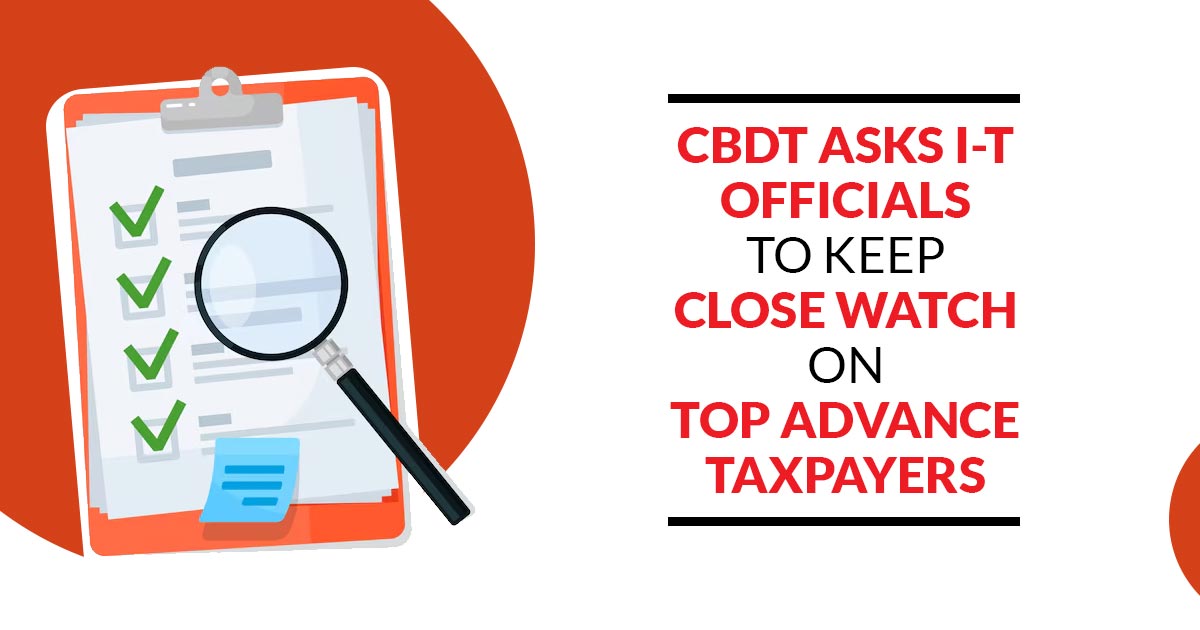
CBDT has asked income tax officials to track advance taxpayers and identify fake claims of exemptions and deductions in order to improve direct tax collections in the current fiscal year.
The central action plan (CAP) for 2025-26 has been issued via the Central Board of Direct Taxes, the policy-making body for the department, which guides to steering of major performance areas for the department concerning the revenue collection work.
As per the Budget estimates presented in February, the Union government has set a direct tax collection target of ₹25.20 trillion for the Income Tax Department for the current financial year.
The figure includes Rs 10,82,000 crore in corporation tax, Rs 13,60,000 crore in non-corporate taxes such as personal income tax, and Rs 78,000 crore in securities transaction tax (STT).
For 2024-25, the net direct tax collection missed the target, surging 13.57% to over Rs 22.26 trillion, because of the issuance of the highest ever amount of refunds.
For the direct tax administration as per the budget receipt of July 2024, the government had established a target of Rs 22,07,000 crore and changed it to Rs 22,37,000 crore in February during budget presentation.
The IT department recommended by the CAP to perform a sectoral analysis for effective tax collection by addressing negative trends in tax payments.
The plan asked to hold tracking of the top advance taxpayers, along with the individuals and companies, and “encourage” them to reassess their advance tax liabilities if needed.
Advance tax is the tax amount paid in advance via instalments in a fiscal year. It eases tax collection for the government, averting taxpayers from a tax burden at the year-end.
Also, the department has sought to discover the wrong claims of exemptions and deductions that can lead to revenue loss.
The CAP further recommended conducting revenue profiling of specific districts or regions to identify net positive or negative contributions. In areas where revenue generation is lacking, appropriate corrective measures should be implemented.
The department sought to collect arrears and existing demands and take measures in case of non-compliant taxpayers.
The Office of the Commissioner of Income Tax (Appeals) is to focus on the collection of tax demand, the first appellate procedure in the direct tax system available to taxpayers, followed by distinct courts, high courts, and the Supreme Court.
In the 2024-25 fiscal, the CIT (Appeals) affirmed demands of Rs 1.95 trillion, and the assessing officers are directed to take all needed measures to collect the same revenue within the existing fiscal year.
Also, CAP sought the tax department to perform the outreach programmes and improve the awareness among the taxpayers for the accurate claims for deductions and exemptions, and also familiarise them with filing the updated Income Tax Returns, which is a provision that permits a specific time duration to those who overlooked declaring precise income.
The effort is streamlined for the taxpayers to choose the new tax regime, where no deductions or exemptions are permitted against a flat tax rate, therefore lessening the misuse of the deductions.
Issuance of prompt refunds has been sought by the tax department so that the interest payments and negative impact on the overall budget could be prevented.
The department issued a record-high refund of Rs 4,76,743 crore during the fiscal year 2024-25. This reflects an increase of 26.04 per cent compared to the Rs 3,78,255 crore refunded during the 2023-24 fiscal year.
Read Also: Alert| Don’t Claim Wrongful Deductions and Tax Exemptions
The action plan outlined the rise in the arrear demands and cited that the same remained a focus area for the department. Rs 48,17,763 crore is the existing arrear demand, and the department must make efforts to lessen the number to a manageable level.